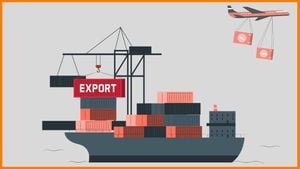The 2025 German Federal Election resulted in significant political shifts as voters cast their ballots under newly reformed electoral regulations on February 23. With approximately 60 million eligible voters, this election was marked by intense competition among 29 parties and major changes aimed at limiting the number of parliamentary seats to 630. This marks the first major election conducted under the revised laws, following the dissolution of the coalition government.
The election saw the Christian Democratic Union (CDU), led by Friedrich Merz, challenging the Social Democratic Party (SPD), which is still reeling from its leadership under Chancellor Olaf Scholz. The Alternative für Deutschland (AfD) also gained attention, with candidate Alice Weidel appealing directly to voters disenchanted with the establishment. With recent polls indicating substantial voter uncertainty—around one-fifth were reportedly undecided—every party scrambled to secure their support to remain viable.
Migration and economic concerns dominated the electoral agenda, reflecting broader European trends of public dissatisfaction. Merz criticized the SPD's handling of both the economy and migration policies, stating, "Germany must take more responsibility within the EU. We need economic strength and to pull ourselves out of recession.” This pointed remark highlighted the CDU’s aim to regain voter confidence and promote nationalistic sentiments.
Notably, the new electoral reforms eliminated overhang mandates, which had allowed individual constituencies to yield additional seats, often swelling the number of total representatives beyond the set cap. This shift aims to create more equitable representation; as noted, "Um ein weiteres Aufblähen des Bundestages zu verhindern, wurden jedoch Überhang- und Ausgleichsmandate abgeschafft und die Zahl der Abgeordneten bei 630 gedeckelt." This transformation reflects long-considered reforms aimed at stabilizing the political playing field.
Meanwhile, the AfD benefitted from significant grassroots support, particularly among those concerned about immigration. Analyzing this phenomenon, Lu Dalian noted, "Die Menschen in China verstehen nicht, was rechtsextrem bedeutet." This indicates broader global perceptions surrounding extreme political movements, which also pierce through German politics as geopolitical narratives intertwine.
China has taken interest as well, with discussions focusing on harmonizing economic ties less influenced by geopolitical strains. Victor Gao of the Center for China and Globalisation stated, "China und Deutschland sollten mehr wirtschaftlich kooperieren und sich nicht von geopolitischen Konflikten leiten lassen." Such sentiments suggest China may favor an AfD victory, seeing it as beneficial for its interests within Europe, particularly considering Germany's historical criticisms of China.
The elections themselves were complicated by logistical challenges, including reduced participation among postal voters, likely due to the significantly shortened election period—less than three weeks—which spanned from election announcements to voting day. Many cities and towns noted lower engagement compared to 2021, where 47.3% had opted for mail-in voting.
With tensions rising globally, the 2025 German Federal Election underscored pressing domestic issues, igniting public discourse around migration and economic recovery. All parties pivoted around these themes, trying to capture voter concerns, leading to heated debates and confrontations typical of close elections.
Looking forward, the political repercussions from this election are likely to reshape the legislative agenda, as the newly-elected parliament navigates through mounting challenges. The CDU aims to revive its political influence, the SPD seeks to stabilize after its losses, and the AfD is poised to leverage its growing support base to amplify their agenda.
Overall, the outcome of this election will not only influence German politics but ripple through European and global political landscapes, particularly concerning issues of migration and economic policies. The shift away from established parties could signal newly aligned political alliances and international relationships shaped significantly by this pivotal election.



